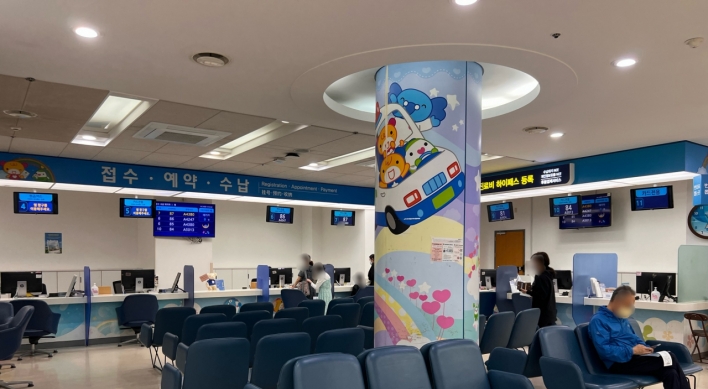SME lobby chief proposes alternative inter-Korean complex on Chinese border
By 임정요Published : April 1, 2016 - 10:45
Following the recent shutdown of an inter-Korean joint industrial park in North Korea's Gaeseong, an association of South Korean small businesses has been reviewing ways to build an alternative complex near the Chinese border to take advantage of its geographical proximity, its chief said Friday.
The Park Geun-hye government in early February shut down the Gaeseong Industrial Complex, just north of the Demilitarized Zone separating the two Koreas, in response to Pyongyang's fourth nuclear test and a long-range rocket launch, dealing a blow to a number of South Korean investors with frozen assets in the North Korean border town. The closure of the last symbol of inter-Korean reconciliation showed Seoul's determination to prevent money generated from the factory zone from bankrolling the North's nuclear and missile programs.
Park Seong-taek, chief of the Federation of SMEs, said his association has been looking for ways to help local companies to continue to do business in safer regions where North Korean labor is available.
Park said that among the potential candidates are Dandong, a Chinese border town across the Yalu River, and Yanji in the northeastern border area across the Tumen River. Both Chinese cities have a significant population of Korean diaspora and can serve as North Korea's gateway to the world.
"Rather than a direct investment platform like the Gaeseong Industrial Complex, we have been considering building an agricultural industrial complex for small and medium-size companies in Dandong and Yanji under the premise that the inter-Korean relations stand on a better footing," Park said during an interview with Yonhap News Agency. "It would allow (Korean firms) to use cheap North Korean labor and secure investment stability because it is a third-party location."
China, which accounts for nearly 90 percent of North Korea's external trade, serves as an economic lifeline to the impoverished state.
The proposal is aimed at taking advantage of the geographical proximity of the Chinese border, which is less prone to shut down even when military and political tensions flare up between two Koreas, he said.
Park, however, remained cautious over the scheme considering the heightened tension between the two Koreas.
"We just drew up the idea and plan to propose it to the government in the latter half of this year," he said.
More than 120 South Korean firms had operated factories at the Gaeseong complex, employing more than 54,000 North Korean workers to produce labor-intensive goods, such as clothes and utensils.
The complex opened in 2004 as a result of the first inter-Korean summit in 2000. It served as a major revenue source for the cash-strapped North, while South Korea benefited from cheap but skilled North Korean labor.
South Korean firms last month claimed that they suffered more than 815 billion won ($712 million) in losses from the shutdown, adding that their actual damage could be much larger. (Yonhap)




![[Grace Kao] Hybe vs. Ador: Inspiration, imitation and plagiarism](http://res.heraldm.com/phpwas/restmb_idxmake.php?idx=644&simg=/content/image/2024/04/28/20240428050220_0.jpg&u=)

![[Herald Interview] Mom’s Touch seeks to replicate success in Japan](http://res.heraldm.com/phpwas/restmb_idxmake.php?idx=644&simg=/content/image/2024/04/29/20240429050568_0.jpg&u=)


![[News Focus] Lee tells Yoon that he has governed without political dialogue](http://res.heraldm.com/phpwas/restmb_idxmake.php?idx=644&simg=/content/image/2024/04/29/20240429050696_0.jpg&u=20240429210658)








![[Today’s K-pop] Seventeen sets sales record with best-of album](http://res.heraldm.com/phpwas/restmb_idxmake.php?idx=642&simg=/content/image/2024/04/30/20240430050818_0.jpg&u=)